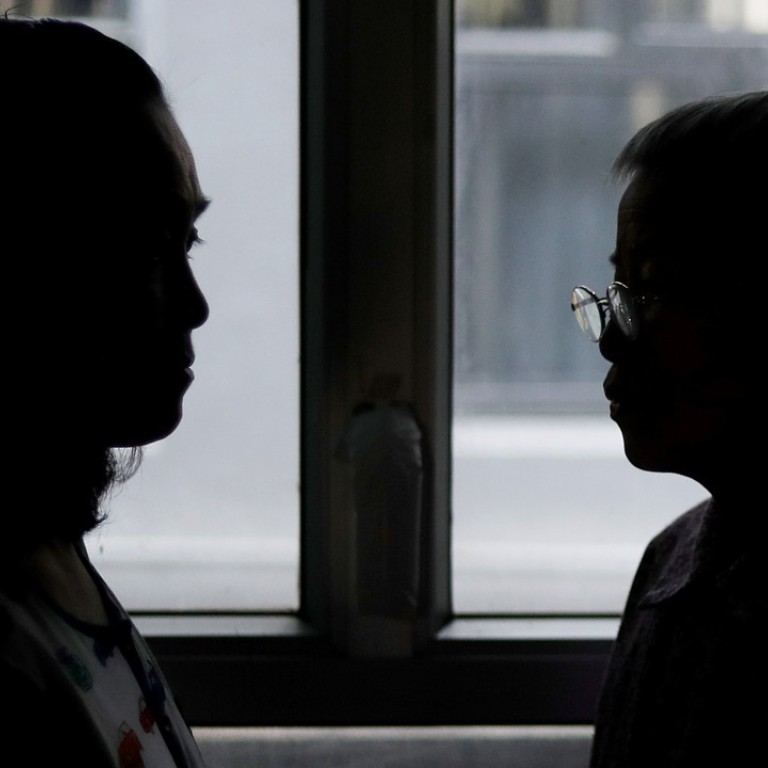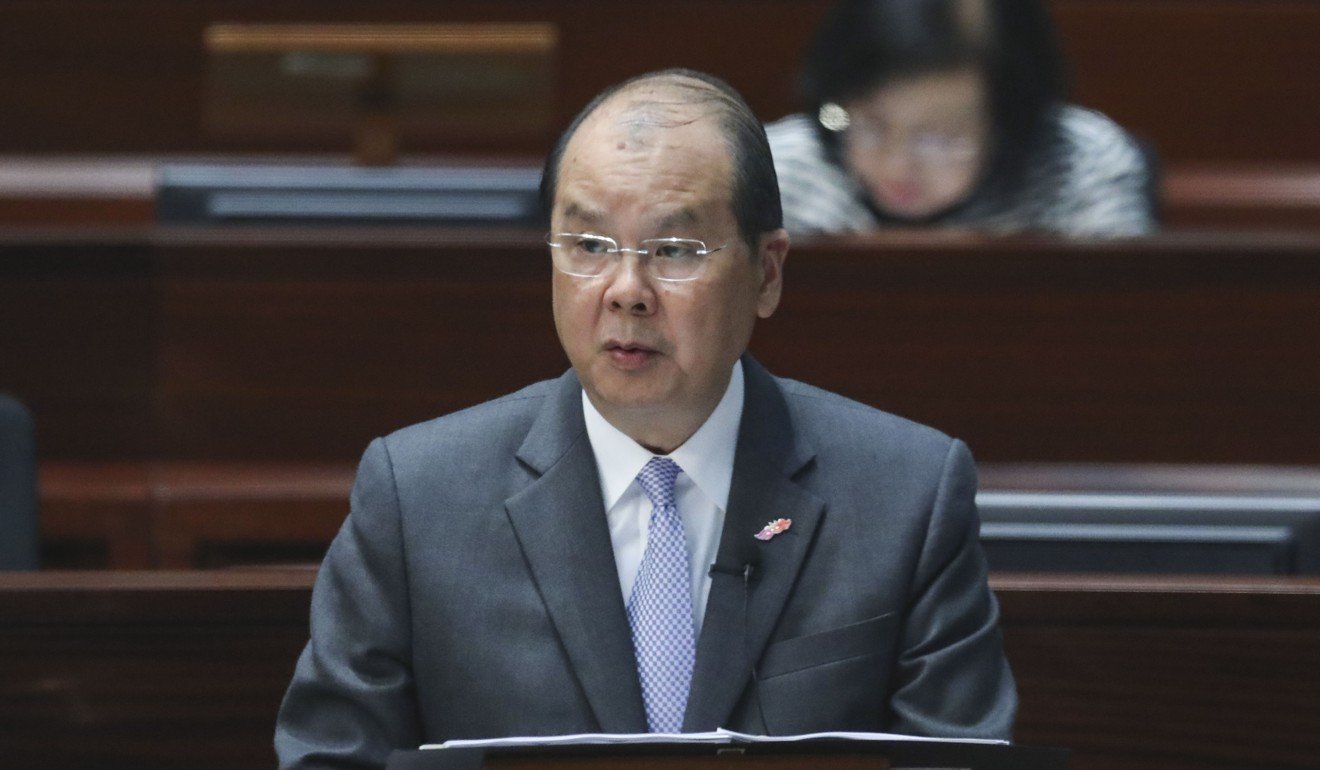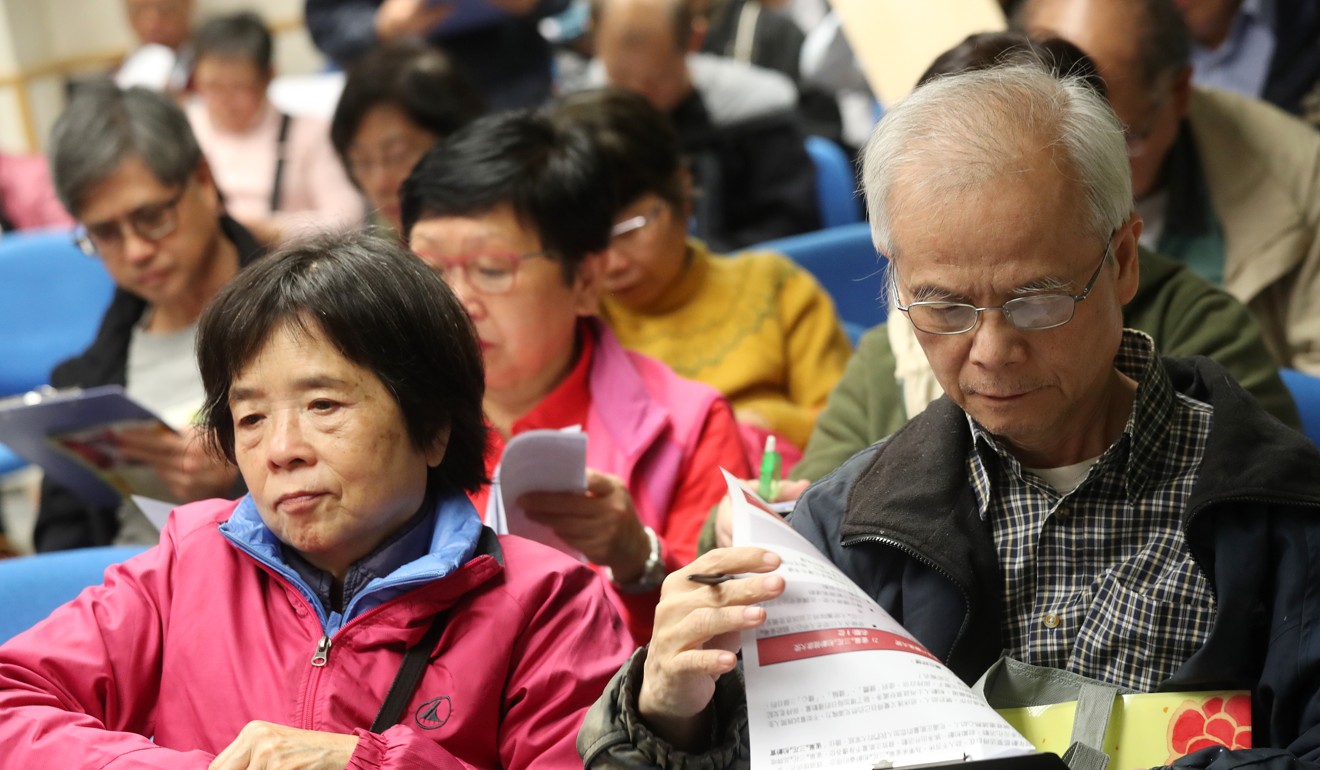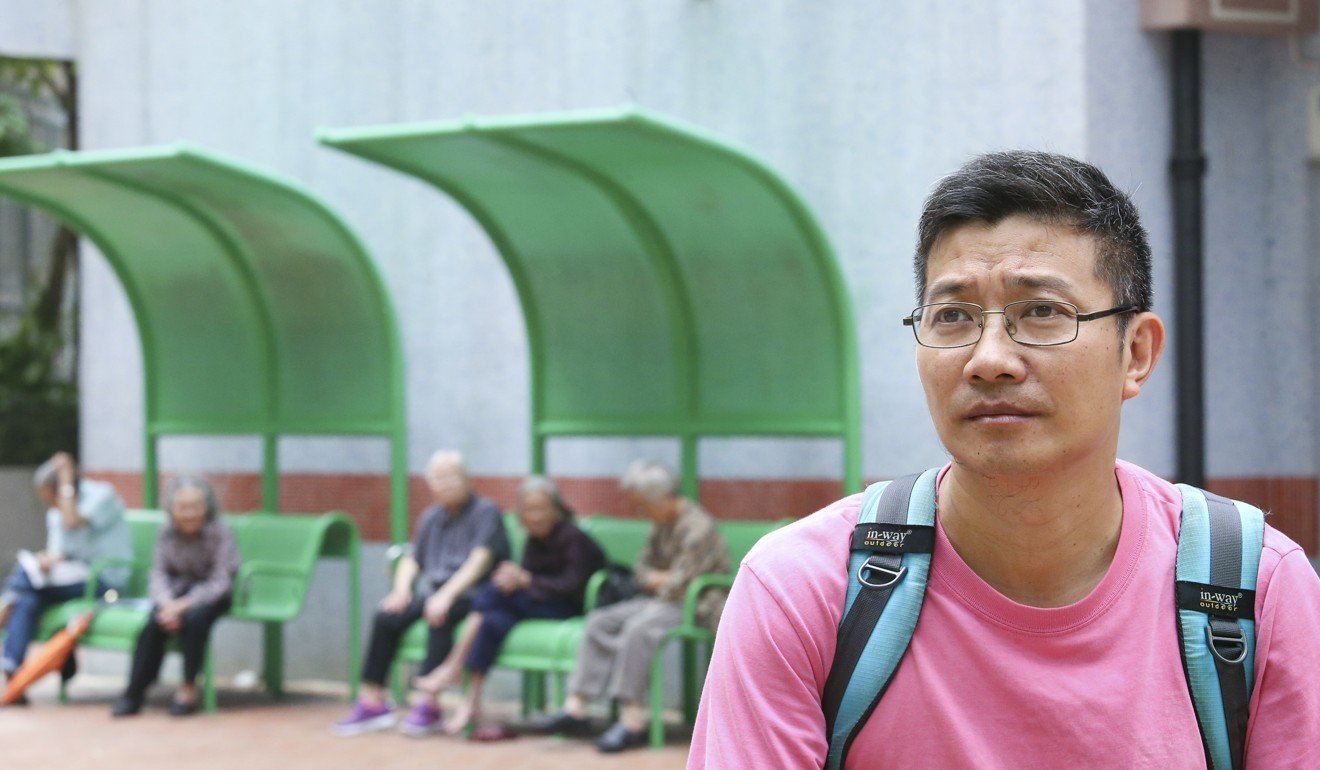
Why Hong Kong’s seniors are in favour of working in old age – they can’t survive any other way
Earning the minimum wage and with very little in savings, retirement is the last thing on the minds of tens of thousands of elderly Hongkongers
Minimum-wage earners in their 70s back a government plan to encourage elderly employment but not because they see themselves as vital to Hong Kong’s workforce, but because they cannot survive without a job.
They have urged the government to provide more details on an upcoming subsidy scheme for employers of elderly workers, and to guarantee better labour protection.
“I can’t talk about retirement. I cannot prepare for it because I earn too little to have enough savings. There’s no point in worrying about it,” said a 71-year-old cleaner named Ling.
Ling said she would try to remain employed as long as her health and the labour market allowed.

“If I stopped working, I’d have to rely on Comprehensive Social Security Assistance, which pays HK$3,000 (US$382) per month and is definitely not enough to maintain my basic life,” Ling said, adding that she also wanted to remain socially engaged through work as she lived alone and had no children.
I can’t talk about retirement. I cannot prepare for it because I earn too little to have enough savings
The Labour Department is set to expand its Employment Programme for the Middle-aged by the end of 2018 to provide subsidies to employers of unemployed jobseekers or retirees aged above 60. It is the government’s latest effort to promote re-employment of the elderly.
Is Hong Kong spending enough to cope with greying population?
Currently, employers who take on unemployed jobseekers aged above 40 can get a HK$3,000 subsidy per month for three to six months under the programme.
According to Cheung, those aged between 50 and 64, and “young olds” aged from 65 to 74, are being encouraged to work because of Hong Kong’s fast-ageing population and labour shortage.

As at the end of 2017, 363,800 individuals aged above 60 – or more than 20 per cent of the population group – were working, among which more than one-third were aged above 65, according to the statistics department.
The number of workers aged above 60 increased by nearly 1.7 times over the past decade and by more than half (59 per cent) in the last five years, official statistics show.
Hong Kong faces ‘dementia tsunami’ as its population ages
Meanwhile, elderly poverty has become more acute in Hong Kong as living costs have risen and the establishment of a universal retirement pension remains out of sight.
From 2012 to 2016, the number of those aged above 65 in poverty increased from 388,000 to 478,000, or from 43.5 per cent to 44.8 per cent of the population group, according to a Commission on Poverty report.
Ling has worked as a cleaner for two decades and earns the least her employer can pay under the Minimum Wage Ordinance, which was put in place in 2011.
Cleaning a government building of 200 civil servants, Ling works from 8am to 5pm for 26 days a month, earning HK$7,176 a month – or the minimum wage of HK$34.50 per hour – with no pay for breaks.
“The amount of work is scarily large and demanding,” Ling said.

“Every day I need to vacuum the place, which is more than 20,000 sq ft and so large that I got lost when I was new to the job,” she added. “I need to clean five public toilets at least twice a day – sometimes five times a day when people exercise bad manners. I need to collect rubbish from at least 200 bins – one for each civil servant and some in the pantries.”
Short, slim and spirited, the 71-year-old cleaner avoided talking about any untoward situations that might force her to stop working, noting: “I have only HK$50,000 in my savings … I want to work as long as I can.”
Ling suggested the government make the subsidies for employers progressive, under which they would be paid more the longer they hired elderly people.
Ng Wai-tung, a community organiser of the Society for Community Organisation (Soco), said officials should disclose more details of the scheme so that the public could advise on potential fine-tuning.
Older Hongkongers still have a lot to offer in the workplace
“For example, can the programme provide a rising subsidy to the employer if he continues to hire the same elderly worker, to increase employment stability?” Ng asked.
“And how can we make sure that these subsidies – allocated in the name of facilitating employee training – will be spent on the elderly employees instead of going directly into the employer’s pocket?”
Ng also called for special labour protection for seniors as the government was promoting employment and re-employment of the elderly who were less physically strong.
Soco wrote on April 18 asking for a meeting with Cheung and welfare minister Law Chi-kwong to exchange ideas on elderly employment policy. On April 27, the Chief Secretary’s Office replied by email saying Cheung was too busy to arrange a meeting.
How can Hong Kong get better carers for its ageing population?
More than 1.4 million vacancies were recorded in the private sector in 2017, a Labour Department spokesman said, adding that employers cannot discriminate, including against age, in recruitment.
In tandem with the new subsidy for employers of elderly people, the department would organise experience sharing sessions and compensation insurance workshops for employers.
It would also conduct surveys regularly to find out the retention status of elderly employees under the programme, the spokesman said.

